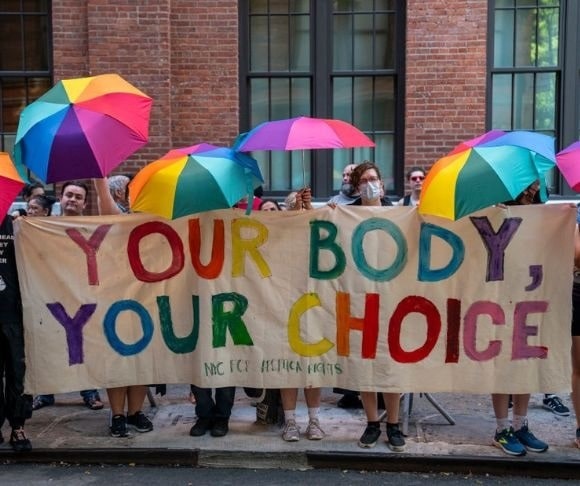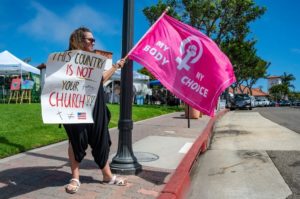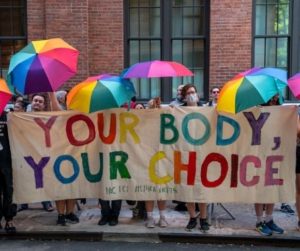
(Photo by Robert Nickelsberg/Getty Images)
Some speculated that when the Supreme Court issued its ruling overturning Roe v. Wade, it not only gave power back to the states to decide abortion rights but also tossed a lifeline to Democrats seeking to hold Congress after the midterm elections. Indeed, ever since it became clear that Roe’s days were numbered, Democrats have leveraged the issue against Republicans in pursuit of victory in November.
 While polling seems to support the notion that Democrats are on the winning side of the abortion rights struggle politically, the numbers indicate their hopes of exploiting the issue to emerge as winners in upcoming elections might not be as well-placed as they believe.
While polling seems to support the notion that Democrats are on the winning side of the abortion rights struggle politically, the numbers indicate their hopes of exploiting the issue to emerge as winners in upcoming elections might not be as well-placed as they believe.
Democrats Banking on Abortion Rights
Abortion has been a hot-button topic for decades, but, after the Court heard Dobbs v. Jackson Women’s Health Organization, attention to the contentious issue exploded.
A Gallup poll conducted in May suggested that 85% of Americans believe abortion should be legal. However, a closer analysis of the data provides some much-needed nuance. Of those who believe abortion should be legal, only 35% say it should be permissible “under any circumstances,” while 50% believe it should be allowed “only under certain circumstances.” A significant chunk of Americans wants some restrictions, which is not in line with the radical pro-abortion crowd.
But there is more to the story and other numbers to take into consideration.
What Are Americans Concerned About?

(Photo by Mark Rightmire/MediaNews Group/Orange County Register via Getty Images)
For starters, while a majority of Americans believe abortion should be legal, they do not appear to consider it as important as other matters the nation faces at the moment. While an Economist/YouGov poll revealed that 48% of Americans believe abortion to be “very important,” the survey suggested that people are far more focused on other issues.
When it comes to education, 60% of respondents indicated the topic is “very important.” About 69% said the same about the economy, and 73% indicated that inflation is a serious matter. Health care (67%), crime (63%), and guns (55%) were also rated as “very important” at a higher rate than abortion.
Not Enough Passion for Abortion Rights
An additional factor in this equation is the disparity in voter enthusiasm between pro-lifers and pro-choicers. Another poll showed numbers that may be problematic for Democrats seeking to remain in control of the legislature. It measured attitudes toward the overturning of Roe: Almost two-thirds of respondents said the Court’s Dobbs ruling was a “major loss of rights” for women. However, those who agree with this statement are far less likely to show up to the polls in November than those who disagree with it.

(Photo by Robert Nickelsberg/Getty Images)
Researchers found that respondents who do not believe the overturning of Roe is a loss for women are 18 percentage points more likely to vote in the upcoming congressional election. To put it simply, abortion rights might be an important issue for those who are pro-choice, but these voters are not as zealous about the matter as pro-lifers.
The data do not exactly paint an optimistic picture of the Democrats’ political future. If people aren’t motivated by the abortion rights issue, the left may not win so handily in November. But the numbers bear out what many already know: People are worried about affording gas, groceries, and other products that have seen a substantial rise in prices. Feeding their families is a higher priority for Americans than the freedom to terminate a pregnancy at will. As long as this is the case, the abortion rights controversy will not be as useful as Democrats hoped.
Remember to check out the web’s best conservative news aggregator
Whatfinger.com — the #1 Alternative to the Drudge


